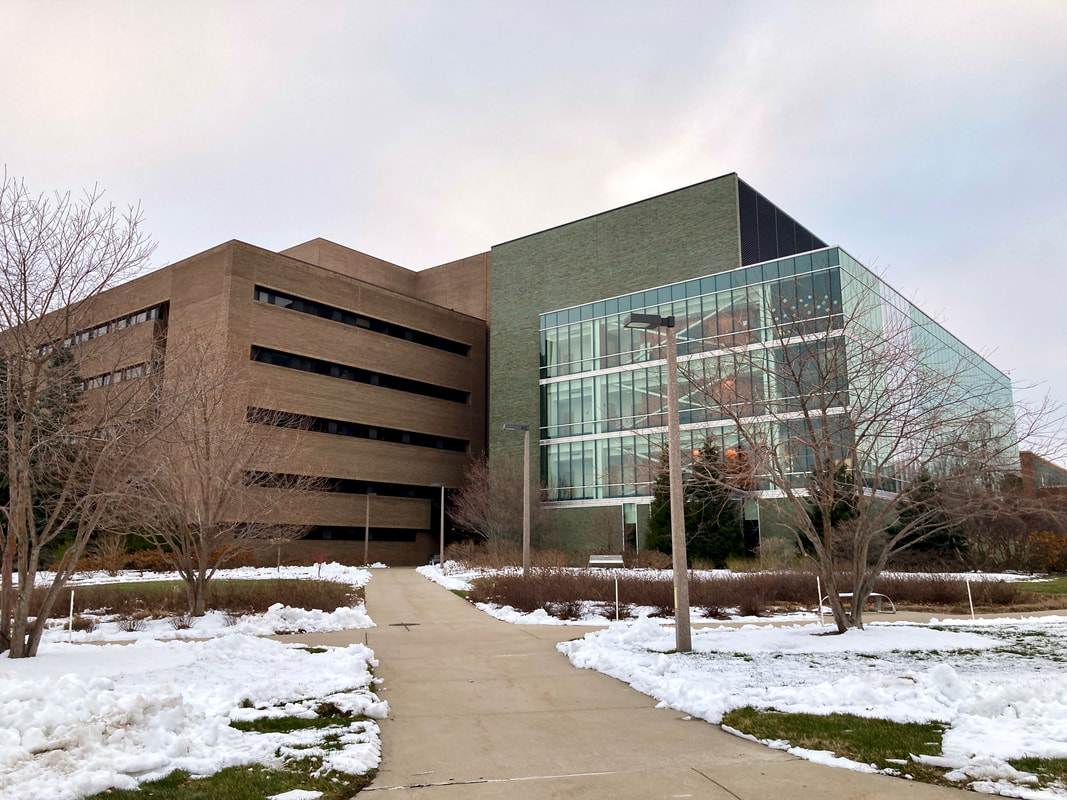My perspective as an educator is that academic training should serve not only to develop a student’s technical knowledge and skills, but should also provide a solid foundation for life-long local and global citizenship as a science professional. My goal in any learning environment—classroom, laboratory, field, or research group—is to facilitate independence in the student as a learner and future professional. In formal courses and my advising activities, I expect each student to take an active role in her or his own learning process, and to contribute positively to a collaborative learning environment. Our outreach activities for public groups are designed to inspire curiosity and excitement about the environment and scientific discovery. Our service activities for professional groups help provide greater understanding about the potential ecological consequences of land management actions.
Courses Taught
Scientific Communication & Professional Development
(CSS 880, Spring semesters, 2018-present)
Interactive professional experiences including grant pre-proposal preparation and presentation, scientific presentations, mock position interviews, and resume preparation.
Wildland Fire
(FOR 412, Spring semester, 2017)
The objective of this course is to introduce students to the fundamental processes of wildland fire behavior, fire ecology, and fire management. This course also provides the required training for all personnel seeking to become Wildland Firefighters under National Wildfire Coordinating Group (NWCG) certification standards.
Introduction to Forest Ecology
(FOR 404 and FOR 404L, Fall semesters, 2014-2017)
Introduction to Forest Ecology is a three-credit course (with one-credit lab) designed to introduce students to the range of ecological interactions that occur within forest ecosystems. The course will cover plant resources, species interactions, ecological succession, biodiversity, forest productivity, cycling of nutrients and carbon, forest ecosystem structure and function, non-native species, and forest responses to global environmental change.
Forestry Field Studies
(FOR 420, Summer semesters, 2014-2016)
Forestry Field Studies is a three-credit, field-based course open to juniors and seniors. This course is team-taught with other faculty from the Department of Forestry. The course enables students to integrate tree biology, silviculture, forest ecology, soil science, and forest mapping and inventory skills in a range of forest ecosystems across Michigan. Students develop a stand management plan for one of the forest ecosystems visited during the course.
Ecology and Environmental Justice
(TBD, special topics seminar)
This graduate-level seminar course is designed to acquaint early-career ecologists with the history and current issues of the environmental justice movement, and to identify the potential ways that ecologists and ecological research can contribute to environmental justice efforts. Students develop and facilitate engagement activities with community groups and individuals involved with environmental justice activities, and discuss practices for effective engagement with non-scientific communities.
(CSS 880, Spring semesters, 2018-present)
Interactive professional experiences including grant pre-proposal preparation and presentation, scientific presentations, mock position interviews, and resume preparation.
Wildland Fire
(FOR 412, Spring semester, 2017)
The objective of this course is to introduce students to the fundamental processes of wildland fire behavior, fire ecology, and fire management. This course also provides the required training for all personnel seeking to become Wildland Firefighters under National Wildfire Coordinating Group (NWCG) certification standards.
Introduction to Forest Ecology
(FOR 404 and FOR 404L, Fall semesters, 2014-2017)
Introduction to Forest Ecology is a three-credit course (with one-credit lab) designed to introduce students to the range of ecological interactions that occur within forest ecosystems. The course will cover plant resources, species interactions, ecological succession, biodiversity, forest productivity, cycling of nutrients and carbon, forest ecosystem structure and function, non-native species, and forest responses to global environmental change.
Forestry Field Studies
(FOR 420, Summer semesters, 2014-2016)
Forestry Field Studies is a three-credit, field-based course open to juniors and seniors. This course is team-taught with other faculty from the Department of Forestry. The course enables students to integrate tree biology, silviculture, forest ecology, soil science, and forest mapping and inventory skills in a range of forest ecosystems across Michigan. Students develop a stand management plan for one of the forest ecosystems visited during the course.
Ecology and Environmental Justice
(TBD, special topics seminar)
This graduate-level seminar course is designed to acquaint early-career ecologists with the history and current issues of the environmental justice movement, and to identify the potential ways that ecologists and ecological research can contribute to environmental justice efforts. Students develop and facilitate engagement activities with community groups and individuals involved with environmental justice activities, and discuss practices for effective engagement with non-scientific communities.
The Miesel Lab |
Contact meJessica R. Miesel, Ph.D
Associate Professor Michigan State University Department of Plant, Soil and Microbial Sciences Office: PSSB A560 mieselje@msu.edu 517.353.0485 |
Land acknowledgment
Michigan State University occupies the ancestral, traditional, and contemporary Lands of the Anishinaabeg – Three Fires Confederacy of Ojibwe, Odawa and Potawatomi people. The University resides on Land ceded in the 1819 Treaty of Saginaw.
|
© COPYRIGHT 2021. ALL RIGHTS RESERVED.
